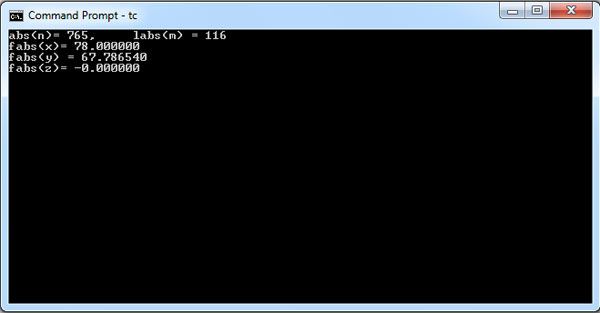These statements determine and print the absolute value of variable n. If n is negative, then n < 0 evaluates as true and n is assigned the value of -n, which is then printed in the next statement assuming variable n to be of some integer type. However, if the value of n is positive, it remains unchanged and is printed.
Note that the above if statement works with both integral and floating point types. Recall that we can also use the abs and fabs functions to determine the absolute value of an integer and floating point expression, respectively.
Illustrates the determination of absolute values
#include <stdio.h>
#include <math.h>
void main()
{
int n = -765;
long int m = - 786548;
float x = -78.0;
double y = -67.78654;
long double z = - 564.564327;
clrscr();
printf("abs(n)= %d,\t labs(m) = %d\n", abs(n), labs(m));
printf("fabs(x)= %f\nfabs(y) = %f\nfabs(z)= %f\n", fabs(x), fabs(y),fabsl (z) );
}

 Dinesh Thakur holds an B.C.A, MCDBA, MCSD certifications. Dinesh authors the hugely popular
Dinesh Thakur holds an B.C.A, MCDBA, MCSD certifications. Dinesh authors the hugely popular